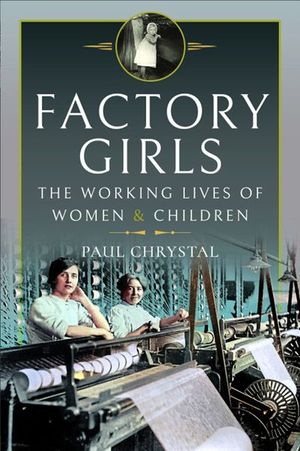Factory Girls
Published by Pen & Sword Books
Ever since there have been factories women and children have, more often than not, worked in those factories. What is perhaps less well known is that women also worked underground in coal mines and overground scaling the inside of chimneys. Young children were also put to work in factories and coalmines; they were deployed inside chimneys, often half-starved so that they could shin up ever narrower flues. This book charts the unhappy but aspirational story of women and children at work through the Industrial Revolution to the beginning of the 20th century. Without women there would have been no pre-industrial cottage industries, without women the Industrial Revolution would not have been nearly as industrial and nowhere near as revolutionary. Many women, and children, were obliged to take up work in the mills and factories – long hours, dangerous, often toxic conditions, monotony, bullying, abuse and miserly pay were the usual hallmarks of a day’s work - before they headed homeward to their other job: keeping home and family together. This long overdue and much needed book also covers the social reformers, the role of feminism and activism and the various Factory Acts and trade unionism. We examine how women and children suffered chronic occupational diseases and disabling industrial injuries - life changing and life shortening – and often a one way ticket to the workhouse. The book concludes with a survey of the art, literature and the music which formed the soundtrack for the factory girl and the climbing boys.
BUY NOW FROM
COMMUNITY REVIEWS

